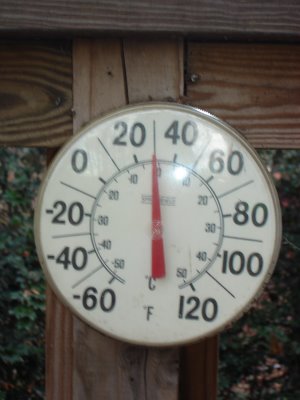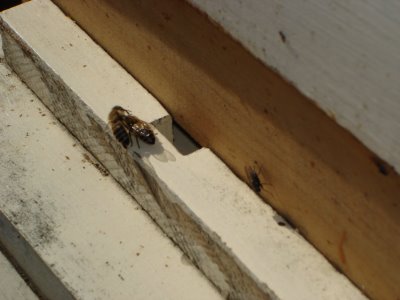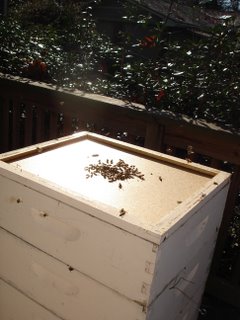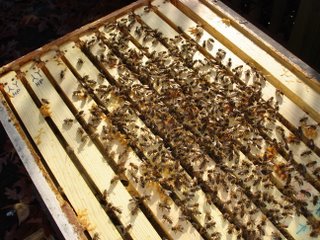When the bees die in the summer, their bodies are removed by the mortician bees. In the winter cluster, the bees have to wait for warmer temps to move the bodies out of the hives.
Also in the winter, some of the older bees may fly out on the warmer temp times and then be too weak to return to the hive. These bees will add to the dead bees in front of the hive. The bee in the upper left of the bottom picture is barely able to move and will die out on the deck without returning to the hive.
Bees in winter - sort of bleak, huh?









